April 19, 2024 | 18:06 GMT +7
April 19, 2024 | 18:06 GMT +7
Hotline: 0913.378.918
April 19, 2024 | 18:06 GMT +7
Hotline: 0913.378.918
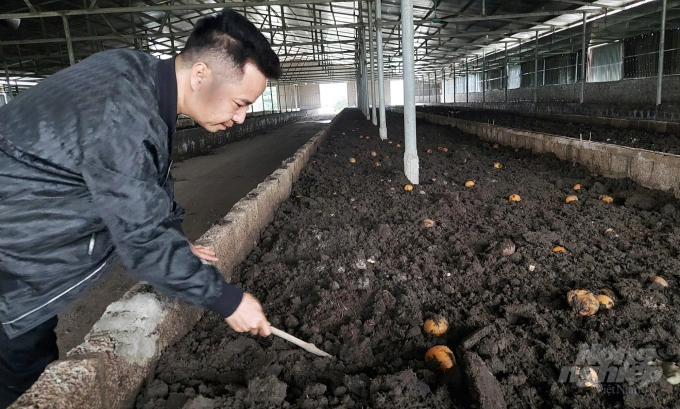
Nguyen Van Chung, owner of Chung Thuy Farm in Thanh Hoa Province's Thach Thanh District, has 73 hectares of organic farming. Photo: Vo Dung.
While organic farming has become an evitable trend, most farmers find it difficult to expand the production due to high costs, strict requirements and unstable market.
Nguyen Van Chung, owner of Chung Thuy Farm in Thanh Hoa Province's Thach Thanh District, said his family now has 73 hectares of organic farming.
Currently the farm is certified to meet Global Good Agricultural Practice (GlobalGAP) standard, which means that it is eligible to export to European countries and other choosy markets.
According to Chung, fertilisers and pesticides are the two decisive factors to organic agriculture. Fertilizers must be of organic origin and pesticides must be of biological origin and not harmful to the environment. It’s a must to follow strict procedure while caring for the plants.
Chung now has 6,000 square meters dedicated to raising earthworms (Perionyx excavates). Each year he collects 3,000 tonnes of fertiliser. This is the main source of organic fertiliser for his orange and pomelo crops.
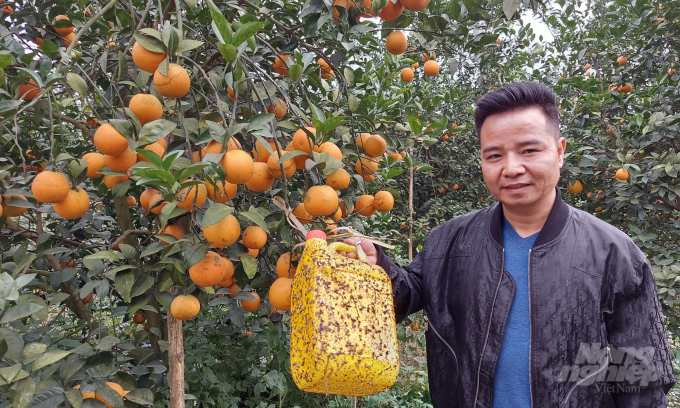
Thanks to adoption of organic fertiliser and natural pesticide, Chung Thuy Farm's products meet GlobalGap standard which means that it is eligible to export to European countries. Photo: Vo Dung.
“In addition to earthworm fertilizer, we also use soybeans, corn and sea fish which were ground into flour, together with bio-products to provide nutrients for plants,” he said.
He makes homemade pesticide by combining crushed garlic and chili with Chinaberry tree’s leaves to ward off insects.
“The greatest benefits of organic farming is to ensure the safety of agricultural products and minimise the impact on the environment as well as having high yield potential.
"The plants grow healthy and their harvesting cycle is longer than traditional farming,” Chung said.
Thanks to the adoption of organic farming, he has continuously harvested orange trees with a yield of 60 tonnes per hectare over the past five years, he said, adding that the productivity might be up to 80-90 tonnes.
“Organic fertilizer helps plant roots to be healthy, penetrating deep into the ground to absorb necessary nutrients. Earthworms and sea fish are high protein sources that provide essential nutrients to ensure crop productivity.
“In short, you’ll have a long harvest cycle if the soil is good," he said.
Although it is costly to produce and requires strict management in all processes, organic products are still undervalued.
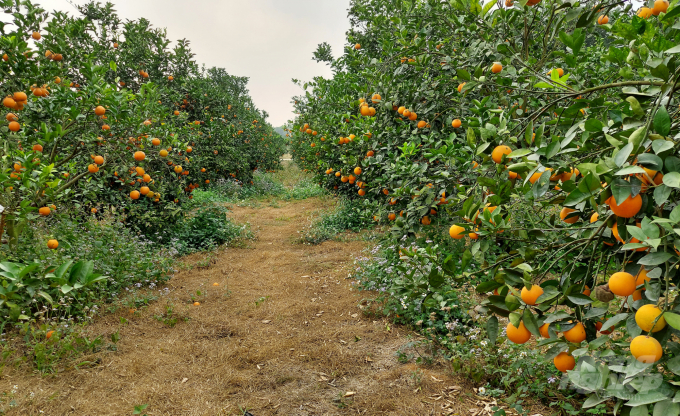
Most farms in the northern province of Thanh Hoa haven't been certified as organic ones. Photo: Vo Dung.
“All of our products are bought by traders who transport to the wholesale market but no company signs contracts with us in distributing agricultural products in a sustainable way,” Chung said, adding that each year his farm provides 800-1,000 tonnes of fruits a year to the market.
Currently, orange is sold at VND14,000-15,000 per kg (about US$60 cents) – equals the average market price.
With such a price, they could only cover the expense, he said.
Despite obtaining GlobalGAP standards, all products cultivated in the locality are not on sale at supermarkets, not to mention that it’s not easy to export the products to foreign markets.
In theory, organic agricultural products ensure benefits for both producers and consumers in the long term, but in the short term farmers are suffering losses.
“It’s more difficult to wipe out insects and harmful organisms without using pesticides, so farmers have to be more diligent in order to keep the plants healthy.
“Because we can’t find sustainable outlets for our products at the moment, we have to sell them to traders at the same price as non-organic products on the market,” he said, blaming consumers for low awareness on organic products.
It resulted in the fact that profits of organic agricultural production was not as high as expected, Chung said.
According to experts, Vietnam still lacks national standards on organic evaluation to help improve product information transparency, thus helping build trust among consumers and increasing the competitiveness of organic products in both domestic and international markets. Limited support policies for organic farming and unfavourable weather also pose a challenge to organic farming facilities.
In order to boost organic agriculture, they said, it is necessary to improve the institutions, mechanisms and policies that require the coordination of all economic sectors and farmers to overcome the current shortcomings and bring the highest efficiency in organic farming.
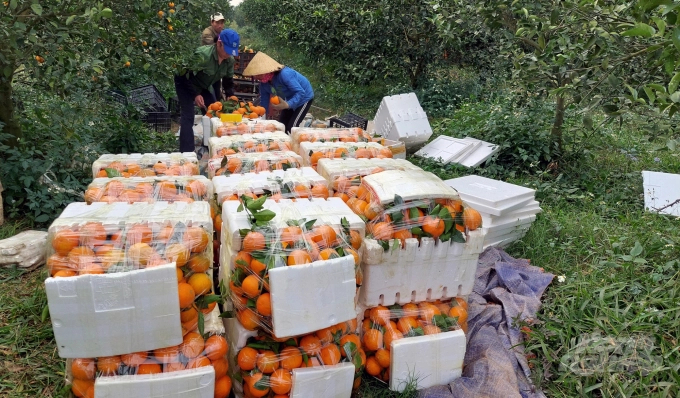
The biggest difficulty for farms cultivated in line with organic farming practices but their products are sold at the same price as non-organic ones. Photo: Vo Dung.
It is a must to build a comprehensive legal framework for organic farming, and on that basis, mobilise all economic sectors, enterprises, cooperatives and farmers to involve in the development of organic agriculture.
Specific policies should be issued to attract foreign investment and support, including direct investment, management experience, and the application of scientific and technical advances, the experts said.
Translated by Mai Huong
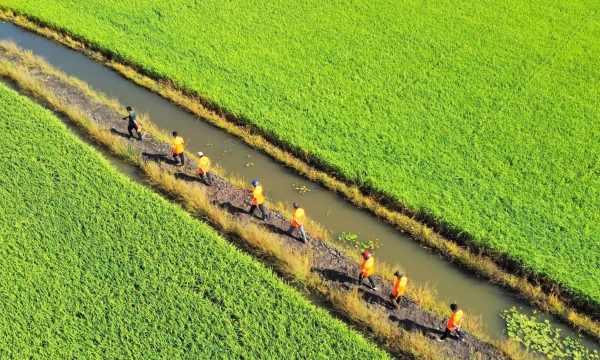
(VAN) SunRice Group is encouraging Mekong Delta farmers to implement sustainable rice farming techniques and set goals to reduce carbon emission to 0 throughout its value chain by 2050.
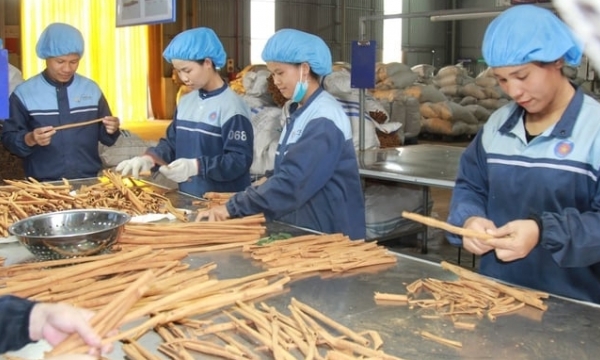
(VAN) Businesses and farmers have closely collaborated to develop organic cinnamon production area, with investments in high-tech deep processing factories for export.
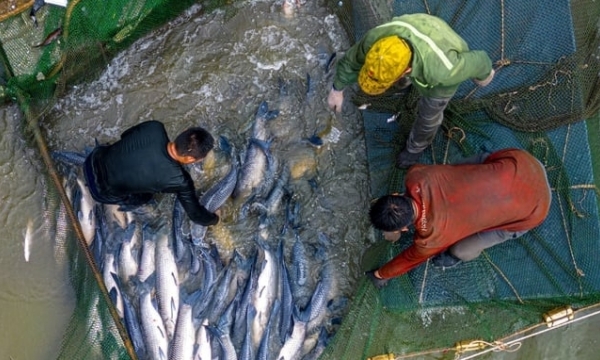
(VAN) With the 15 trillion dong credit support package for the forestry and aquaculture sectors recently achieving its goal, the State Bank proposed to double the scale in 2024.
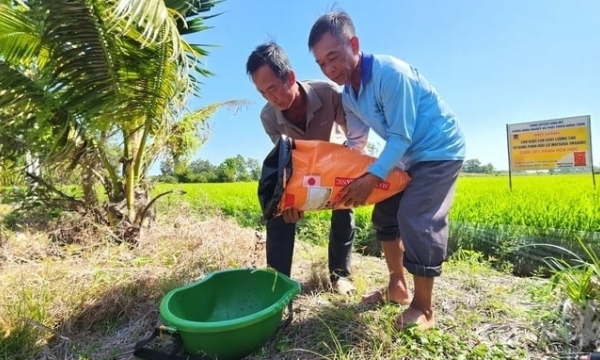
(VAN) The inaugural training session for trainers on the Fertilizer Right Project has officially begun, providing information and skills on the appropriate utilization of fertilizers in agriculture.
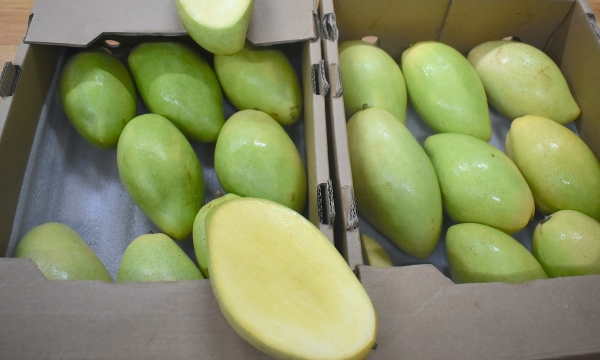
(VAN) Fresh mangoes typically have a shelf life between 5 and 7 days. However, standard operational procedures can extend this period to a minimum of 21 days and potentially up to 35 days.
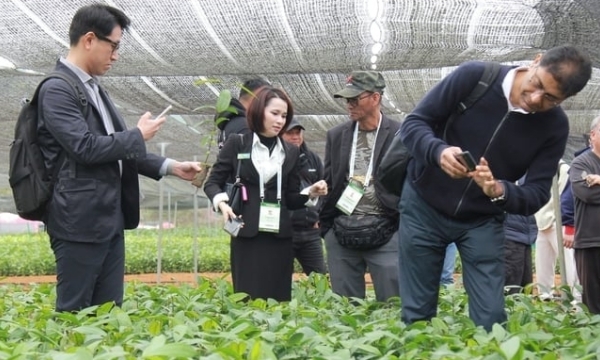
(VAN) Yen Bai plans to establish 90,000 hectares of stable cinnamon production area by 2025, which includes 35,000 hectares of intensive production area and 20,000 hectares of certified organic production area.
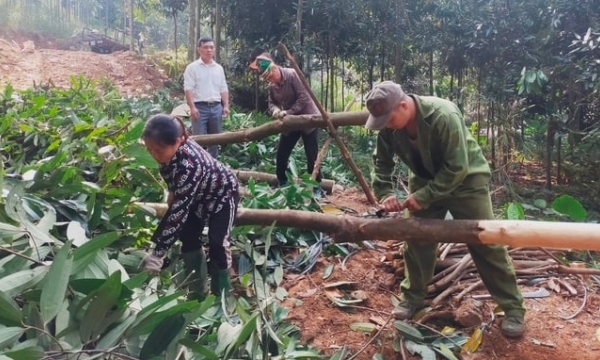
(VAN) A cooperative in Yen Bai province, with over 1,000 hectares of organic cinnamon and 800 participating households, exports its products to various international markets including the United States, Japan, South Korea, and France.